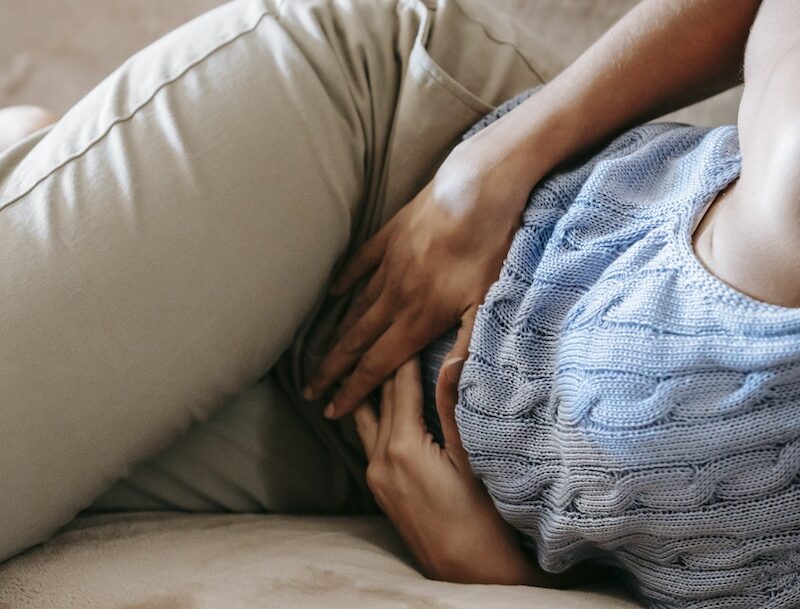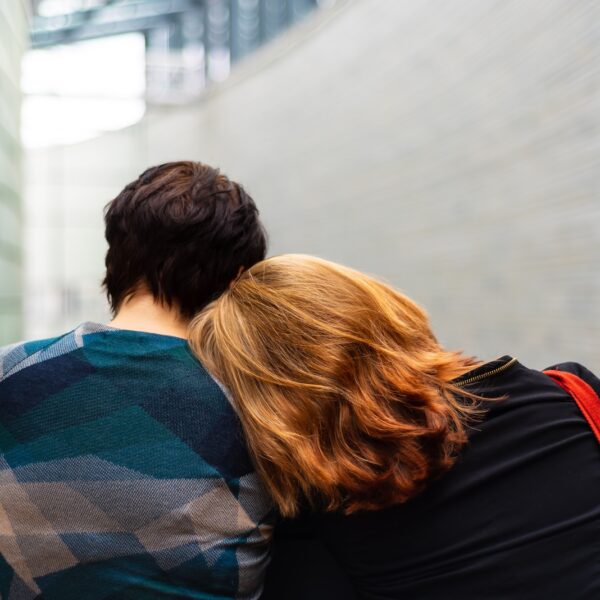Occasional itching or irritation in the vulva and outer genitals is normal and usually nothing to worry about. But if the burning is persistent or gets worse during your period, there might be an underlying issue that needs to be treated.
Bacterial vaginosis (BV) is one of the most common causes of vaginal pain, especially before and during menstruation. It’s characterized by an overgrowth of yeast that can cause itching and burning, along with thick, white discharge.
Hormonal Changes
Sometimes your hormones can cause vaginal burning, especially during a period. It can be caused by a hormonal imbalance or a change in your hormone levels.
The ovaries naturally produce the hormone oestrogen, which can affect the vulva and lead to a feeling of burning during your period. Women may experience this during perimenopause, which is the transition to menopause, or after a gynecologic procedure that impacts their ovaries.
A change in hormone levels can also impact the vaginal pH balance, which can cause itching and burning. It can also make you more susceptible to sexually transmitted infections such as bacterial vaginosis, herpes, chlamydia and HIV, which spread person-to-person through sex.
If you’re experiencing a high level of oestrogen, which can be triggered by certain types of birth control or by certain health conditions, you could experience more serious symptoms such as vulvodynia. This is a condition that causes pain in the vulva and can be difficult to diagnose.
Symptoms like this can be eased by taking an estrogen supplement or using a vaginal lubricant, both available over the counter. Women can also opt for hormone replacement therapy (or HRT), which comes in the form of a cream, tablet or ring and is available with a doctor’s prescription. Seeing an osteopath or pelvic physiotherapist can also help with retraining the muscles in the area to relax and desensitise.
Infections
The vulva skin is very delicate, and it can be easily irritated by the fabrics of your underwear and clothes, soaps, lotions, lubricants, and more. Infections can also cause vaginal burning, particularly if they come with other symptoms such as a foul smell or thick discharge.
Infections that affect the vulva can include bacterial vaginosis (BV), candidiasis (a yeast infection), chlamydia, gonorrhea, or trichomoniasis. If the infections aren’t treated, they can lead to complications including preterm birth, infertility, or STDs that may be passed on to a future baby (like HIV).
A common cause of itching and pain during your period is due to folliculitis, an inflammation or infection of the hair follicles. This is not a serious condition, but it can be painful and can cause red bumps and itching down there.
It is a good idea to wear cotton underwear and avoid scented soaps and feminine hygiene washes, as these can make itching and burning worse. If you’ve recently started using a new product that could be causing your itching and burning, try stopping the use of that product to see if your symptoms go away. The same goes for feminine lubricants, sprays and douches, condoms, and tampons. Talk to your doctor if your symptoms persist. They can help you find the right treatment to get your vagina back to normal.
Harsh Products
Many women use products that can irritate the sensitive skin of the vulva. Fragranced soaps, scented shampoos and conditioners, bubble bath lotions, swimming pool disinfectants, perfume, menstrual pads, and even scented toilet paper can all cause vaginal burning, itching, or stinging. Wearing tight pants or pantyhose that restrict air flow can also trigger a reaction.
A yeast infection can also cause a burning sensation in the vulva, especially during or after sex. If you suspect this is the case, it is best to talk to a doctor or nurse so they can run a test or swab your vulva to confirm whether you have an infection.
If the burning happens after sex, you can try adding extra lube to help things slip along and make it more enjoyable. Alternatively, you can opt for a lubricant made from natural ingredients that can soothe the intimate area.
You can also switch to using a different brand of tampon or pad that doesn’t contain a lot of chemicals, or try switching to a menstrual cup. If the burning is accompanied by itching, you may want to see your gynecologist, who can run a swab and/or STI test to ensure you don’t have an infection or another problem. If you have a yeast infection, they can prescribe antifungal medicine. If you’ve been using the same product for a long time, it can take a few days to figure out which one is causing your symptoms.
Sex
If the burning you feel during your period is coupled with pain, you may be suffering from vulvodynia. This condition is characterized by pain in the vulva and outer genitals, and can be caused by a variety of things, including infection (like a yeast infection or bacterial vaginosis), allergies to condoms, lubricants, or soaps, and stress.
It can also be caused by the thinning of the vulva lining during perimenopause, or by other medical conditions like vaginismus or vestibulodynia. It can be hard to diagnose, but it’s worth speaking with your gynecologist about if you’re experiencing it.
Another common cause of vaginal burning is irritation. This can be caused by a variety of things, from feminine hygiene products to perfumes, and even certain medications. If you suspect any of these are the culprits, talk to your health care provider about switching brands or discontinuing use.
It’s also important to be mindful of how you’re cleaning the area, especially if it’s painful. Don’t use harsh wipes or sprays, and instead use a gentle cleanser on the inside of your vulva. A warm water rinse is best, but if that’s not possible, try a sitz bath, which can be soothing and help reduce itching and burning. You can also buy a lubricant that is specially formulated for the vulva to make it more comfortable during sexual activity.




Leave a Comment